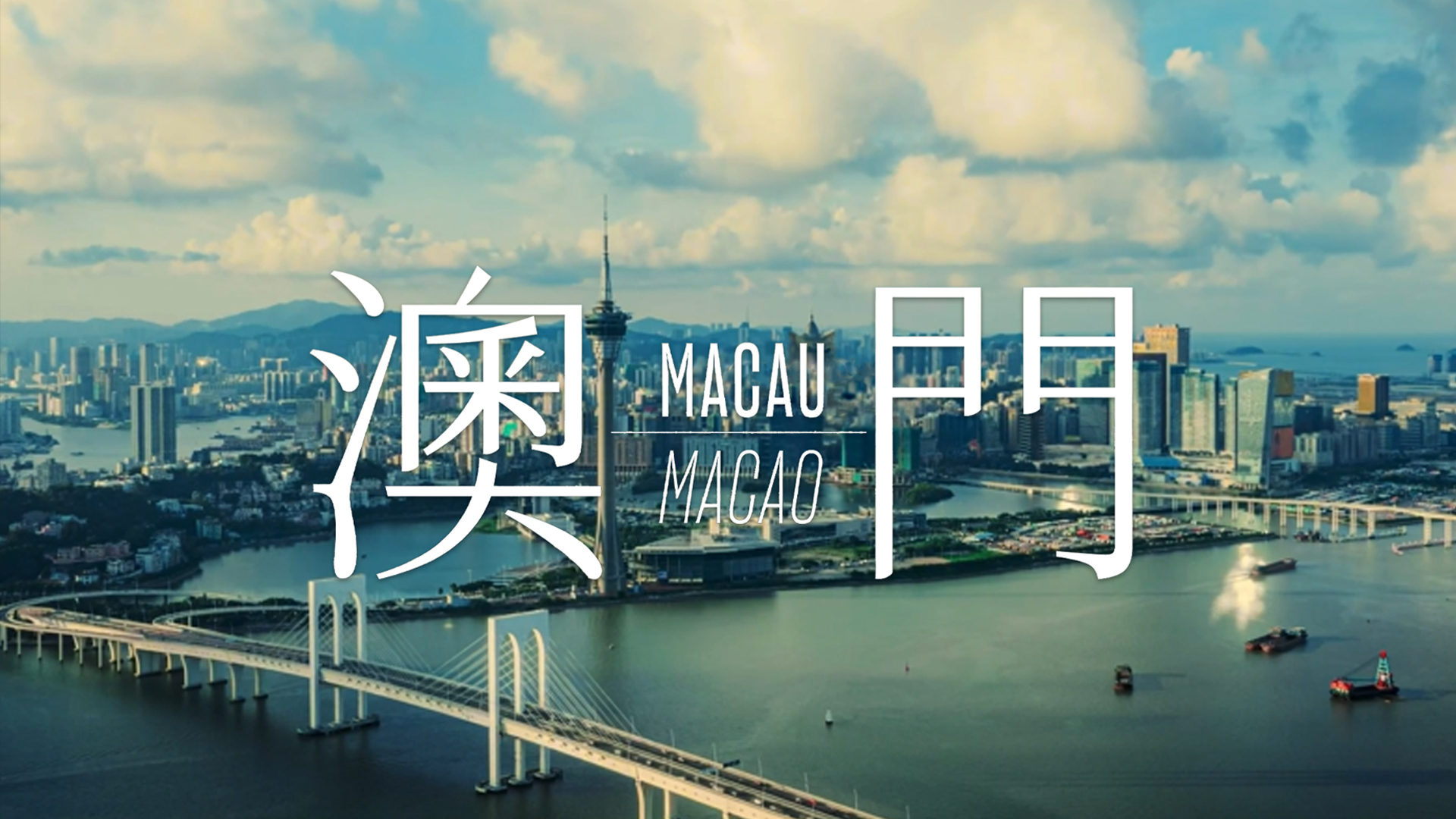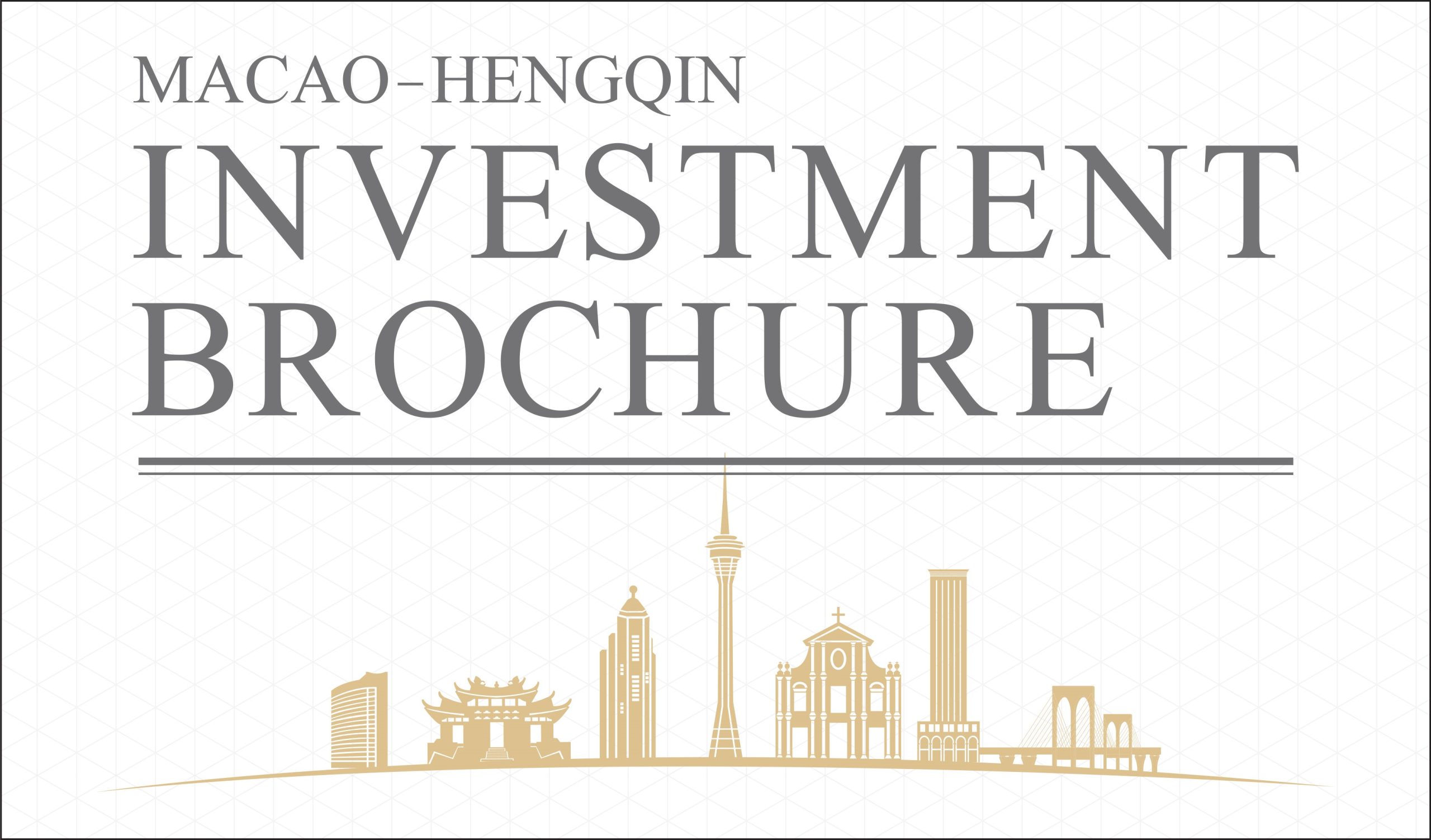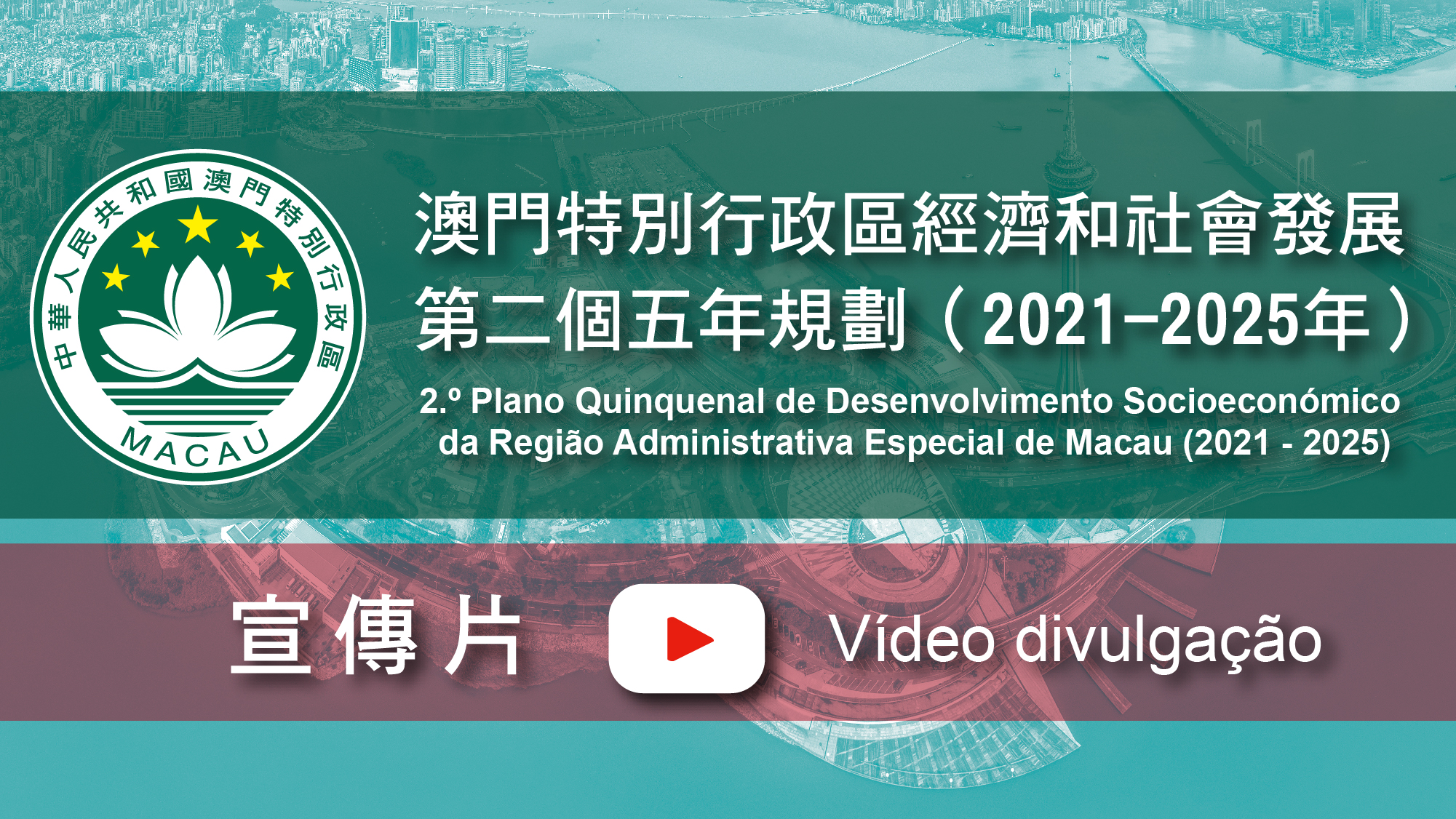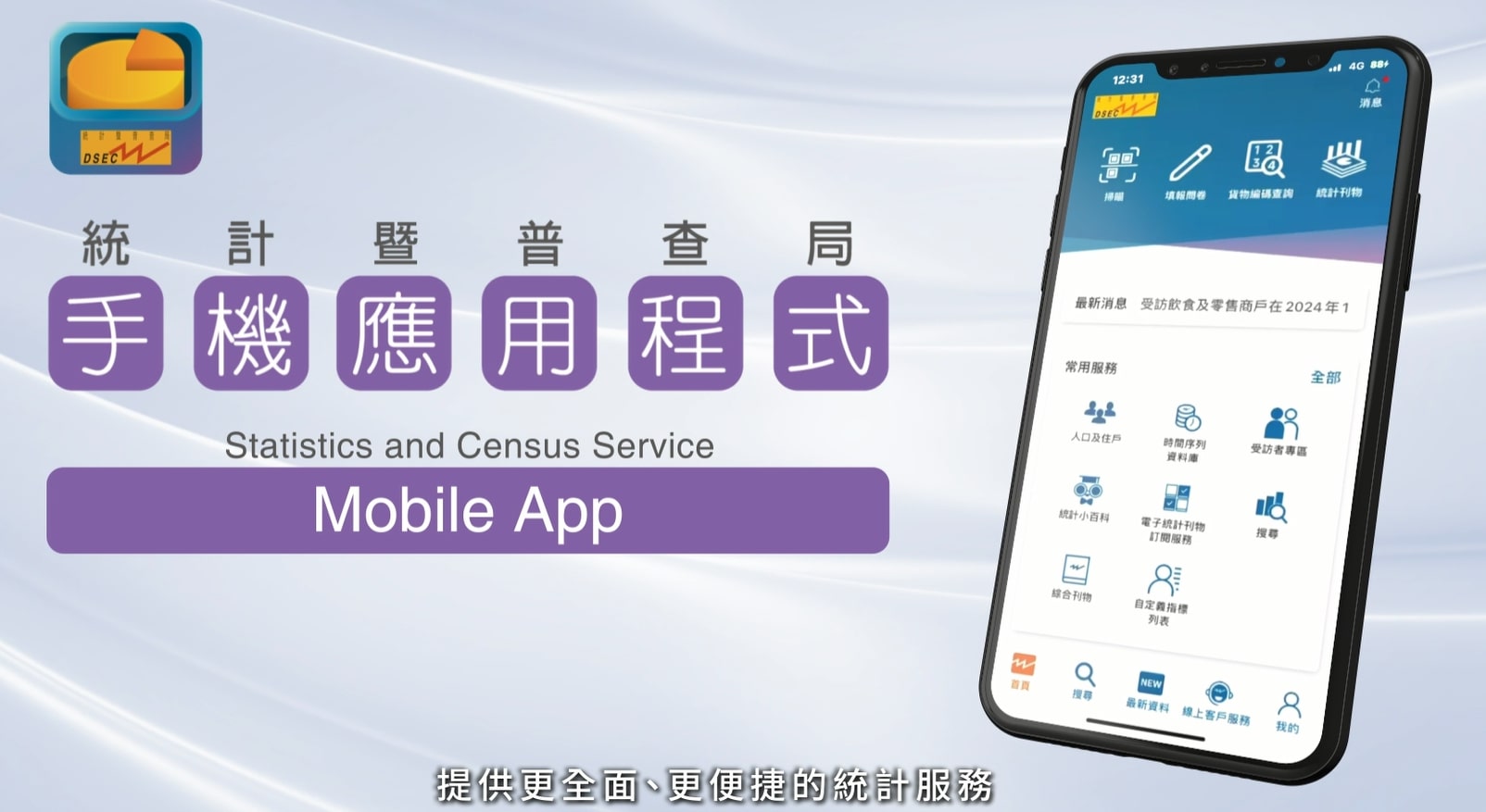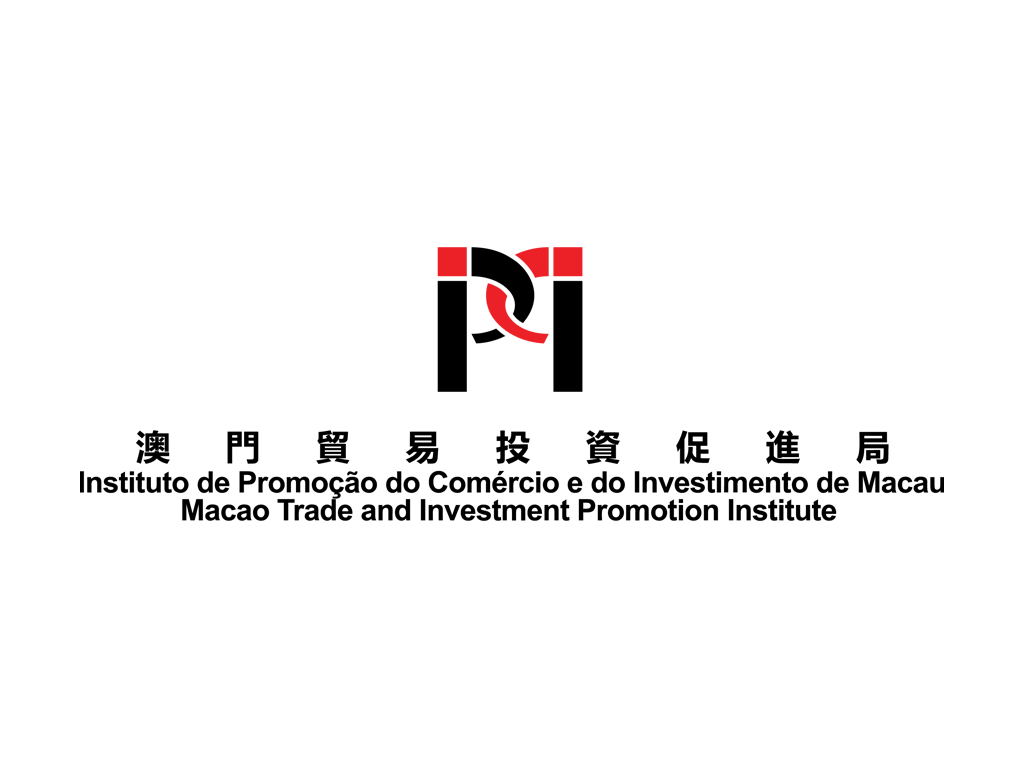Search Issues
Chief Executive Edmund Ho Hau Wah Heads Important Business Delegation to Chongqing
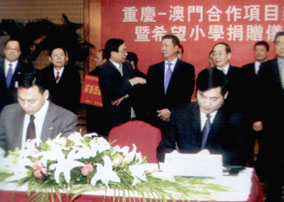
Mr. Edmund Ho Hau Wah, Chief Executive of Macao SAR, headed a large and very important business delegation to Chongqing in January 2002. The visit paved the way for economic and trade co-operation between the two sides. Located in the interior of China, Chongqing is a key city in the southwest and the leading city in China’s programme to develop its vast western area. As a coastal city, Macao is one of the window to the outside world for China. Although geographically apart, the two have their own strengths to complement each other. Preparation for increased co-operation between Macao and Chongqing has been under way ever since Macao’s return to the Motherland in 1999. The Macao SAR recognises Chongqing as one of its priority cities on the mainland for expanded co-operation. The establishment of Chongqing-Macao Economic Co-operation Promotion Association in June 2000 marked the official start for contacts and co-operation between the two cities. Chongqing is the first city in China’s west that Mr. Ho has visited since he took office in December 1999. The business delegation is the biggest one so far, comprising 138 businessmen from Macao. The visit was very fruitful and deepened co-operation between the two cities. 13 co-operation projects were signed and total investment reached nearly RMB 800 million. In addition, contractual investment committed by Macao amounted to US $70 million. Mr. Ho underlined the fact that several business missions from Macao went to Chongqing in 2001. All of them were very impressed by the great economic development there. According to Mr Ho, the business community in Macao is looking forward to doing its part in the process of developing China’s west.
Over Thirty Macao Enterprises Invest in Chongqing
There are more than 30 enterprises in Chongqing with investment from Macao. They produce plastics products, develop real-estate projects, run restaurants and engage in educational and cultural activities, with a total investment exceeding US $ 100 million. According to Mr. Wang Hongju, Executive Deputy Mayor of Chongqing Municipality, Chongqing has rich resources and cheap labour and is a key city in the interior of China, while Macao has access to international capital flow, advanced technologies and manufacturing projects in foreign countries, as well as the means to speed up exports. That is why the two sides can have close co-operation by making full use of each other’s advantages. The two sides can accomplish a lot in jointly developing the tertiary industry since Macao has an edge in international finance, insurance and financing, while the potential for the development of finance and insurance businesses in Chongqing is huge. Mr. Tam Pak Yuen, Secretary of Economy and Finance of the Macao SAR, indicated that although Chongqing and Macao are far from each other in terms of distance, contacts between the two sides in business, trade, tourism, cultural and other fields are becoming increasingly frequent with growth in two-way investment and trade. Given Macao’s strength in international trade, lower operating costs than Hong Kong and more flexible policies, Macao can well serve as a bridge that connects Chongqing to the outside world. At the same time Chongqing can be a launch pad for Macao’s business community to enter China’s western area. Mr. Tam Pak Yuen also pointed out that the WTO divides trade into ‘trade in goods’ and ‘trade in services’. After China’s accession to the WTO, China will firstly open its service market. Since Macao’s service sector is basically in line with international standards, China’s accession to the WTO will certainly present broad prospects for the future development of Macao’s service industry.
Plans for Direct Flights
Mr. Tam also pointed out that intermediaries will be phased out in all the world’s economies since they represent additional costs for suppliers. Therefore, it is necessary for Macao to provide value-added services if it wants to continue its role as an economic and trade intermediary for the mainland. Mr. Ho’s visit was meant, on the one hand, to establish contact channels between the two places and on the other hand, to promote charter flight services between Macao and Chongqing. Mr. Joao Costa Antunes, Director of Macao Tourist Office, who accompanied Mr. Ho, said that many prospective tourists from Chongqing are put off visiting Macao because of the current lack of direct flights. The Macao SAR Government will therefore talk to the business community in Macao and related authorities in Chongqing in order to establish direct flights between the two cities. Every year around 5,000 tourists come to Macao from Chongqing , mainly on package tours that comprise both Hong Kong and Macao. In order to boost the development of tourism, Mr. Fernando Chui Sai On, Secretary of Social Affairs and Culture, will soon head a delegation for the tourism industry to Chongqing to launch a massive campaign to promote Macao.
Chongqing-Macao Bridge Officially Opened
Chongqing-Macao bridge, jointly invested by private enterprises from Macao and Chongqing, has been completed. Chief Executive Ho Hau Wah of Macao SAR, Party Secretary He Guoqiang of Chongqing Municipality and Mayor Bao Juding jointly held the launch ceremony. According to Chief Executive Ho Hau Wah, the bridge is a symbol of the friendship between Macao and Chongqing.
In 1997, Tin Wah Group, Macao invested in the project of Chongqing-Macao bridge together with Chongqing Haixu Industrial Development Co. Ltd. and Chongqing Urban Development Investment Co.. The construction started in December of 1999 and the first phase was finished in January this year. The 1,700-meter-long bridge is situated on the upper reaches of the Jialing River. It has greatly eased traffic jams in Chongqing city and it will give impetus to the infrastructure and economic development in areas nearby. The second phase is expected to be finished in 2003.
Chongqing
Chongqing Municipality, called “YU” for short, covers an area of 82,000 square kilometres and has a population of more than 30 million. It was upgraded to a municipality in 1997, so it is now the biggest and most populous municipality in China. Located in Southwest China, lying in hilly country, at the confluence of Jialing and upper Yangtze Rivers, Chongqing gains fame as the city of Mountain and River for its beautiful scenery. Chongqing is a gateway to the whole of South-West China as well as the largest economic centre on the upper reaches of the Yangtze river with 1999’s GDP surpassing 140 billion RMB yuan. As the key city in China’s programme to develop this vast area, Chongqing municipality offers various investment projects and tax incentives to attract investors.
Macao – an Ideal Platform for Trade and Economic Co-operation between Guangdong and Taiwan

The Fourth Guangdong-Taiwan Economic, Technological and Trade Fair, which was held in Zhuhai in March 2002, attracted more than 2,000 business people from Taiwan. There were 198 projects in Guangdong in areas such as infrastructure development, electronics, information technology, machinery, chemicals, textiles and garments, and trade in services. The overall results have been encouraging.
Due to close geographic and people-to-people relations, Guangdong and Taiwan maintain solid channels of communication in the area of economic development and trade relations. Since the start of the mainland’s reform and opening-up policies, the number and scale of Taiwanese enterprises represented in Guangdong has grown every year. Taiwanese business people have confidence in Guangdong’s great business potential. A very important reason for choosing Zhuhai as the venue for the Guangdong-Taiwan Economic, Technological and Trade Fair was that Macao functions as a bridge between Guangdong and Taiwan for economic and trade ties.
During the fair, Zhuhai Municipality alone attracted 55 investment projects from Taiwan, 36 of which have already been confirmed. The total investment is in excess of USD$440 million, 16 projects are far more than USD$10 million each. The investment projects concerned cover in chemicals, electronics, tourism, bio-technology engineering, eco-farming, and food-processing. Visitors praised the fair for its size, the high-level of participation, pleasant environment and good business results.
According to the relevant authorities, there are presently more than 300 Taiwan-invested projects each worth more than USD$10 million in Guangdong, including an ever increasing number of projects that are valued at more than USD$100 million. Dongguan and Zhongshan have become the main areas for Taiwanese investments in Guangdong Province.
Macao and Zhuhai are neighbours in the prosperous Pearl River Delta, where Macao is a free port committed to free trade, free flow of capital and has a stable financial system, while functioning as a separate jurisdiction and a separate customs territory.
Macao’s taxation system is simple and its rates are quite low. Companies registered off-shore enjoy special tax benefits and exemptions, such as exemption of supplementary VAT, operational tax and stamp taxes, as well as many others. Macao’s transportation and communication systems are good. Its international airport is a portal to many places across the world and provides “all-through” service for Taiwanese visitors to the mainland. Taiwanese need not apply for visa when entering Macao, thus Macao becomes the transferring site of passengers and goods between the mainland and Taiwan.
Since the opening of Macao International Airport, a great number of Taiwanese business people have travelled to Zhuhai, Zhongshan and Dongguan via Macao, where Taiwanese investments there develop rapidly. The direct air route linking Macao with Taiwan is very time saving. Travellers are able to reach Zhuhai or Zhongshan from Kaohsiung or Taipei within a matter of just a few hours, a fact that makes travel via Macao a model for the principle that time is money. Taiwanese business people have recognised Macao’s development strategy of using Zhuhai and Zhongshan as its base for production. Zhuhai and Zhongshan are located in western Guangdong Province, which has rich land resources, abundant low-cost labour and a preferential investment policy. The very location of Zhuhai and Zhonghan as neighbours of Macao makes them ideal places for export-orientated processing and manufacturing. Macao is close to Hong Kong, but its operational business costs are much lower, while the cost of living index is just 40 per cent of that of Hong Kong’s, and the purchase or rental prices of high-class apartments are only 20 per cent of those there. Macao was elected as the second-best city in terms of environmental protection in the Asia-Pacific by the United Nations in 1998, second only to Singapore. Choosing Macao for commercial development and expansion into international markets is certainly a wise choice.
Macao operates as a special bridge between the Chinese mainland and Taiwan for economic and trade relations. The Chinese Central Government’s special policy guidelines for economic and trade ties between Macao-Taiwan have resulted in greater convenience and more opportunities for business people than ever before. Little wonder that Taiwanese business people are becoming more and more interested in investing in Macao. Presently, Macao is improving its flow of manpower, goods, services, capital and information. At the same time, Macao assists in attracting ever more capital, new technologies, new management skills and business-related information to the Pearl River Delta. Many Taiwanese business people have expanded their operations into the mainland via Macao because of the Special Administrative Region’s unique location and highly beneficial position as a bridge between different economic areas.
China’s smooth accession to the WTO has opened up new opportunities for the inflow of outside capital. The Chinese mainland has entered a new phase of attracting new capital from outside. The relatively liberal policies of Taiwan’s administration on investments in the mainland have given Taiwanese business people new confidence. Many Taiwanese business people are keen to expand their investments on the mainland and because labour and production costs are high and land resources are limited in Taiwan. The Chinese mainland has, on the other hand, abundant land and labour resources and much lower labour costs. Besides, the cultural background in Taiwan and on the Chinese mainland is similar. A great number of municipalities and counties on the mainland offer Taiwanese investors highly preferential treatment and mutually beneficial conditions.
With the development of Taiwanese investments on the mainland, a new phenomenon – “crowded investment” – has emerged. Taiwanese business people have established so-called Taiwan Investment Zones in Dongguan and Zhongshan, where they have formed their own communities, even the teachers are from Taiwan, and the education is Taiwanese style. This has set a solid basis for more Taiwanese going to invest in Zhuhai, Dongguan and Zhongshan. It is expected that there will be a new wave of Taiwan investments in Western Guangdong Province in the near future. In other words, Macao will also benefit from this, namely its tourism, hospitality, real-estate, transport, civil aviation and financial sectors, as well as the insurance and business consultancy services. All this will further increase Macao’s economic and social prosperity.
Macao is an important and most convenient gateway for Taiwanese to visit the mainland, and also constitutes an economically significant service base in the Pearl River Delta. Macao’s range of business activities is increasingly manifold. In the past, Macao’s co-operation with the mainland was based mostly on rather spontaneous activities by business people, a situation that was lacking official channels of co-ordination and communication. The recently established Mainland and Macao Joint Commission on Commerce and Trade provides an official communication channel between the two sides. The committee will also promote economic and trade co-operation with Taiwan. This new channel greatly assists Taiwan business people in selecting their investment opportunities. All this has proved to save time, energy and money for all concerned.
Macao is now in the process of establishing a new image by doing its best to become a more effective communication channel for economic and trade co-operation between Taiwan and the mainland and to promote economic development throughtout the whole region.
Eduardo Ambrosio, Head of the Forum of Portuguese-speaking Entrepreneurs in Macao,
is Adamant that Untapped Markets in Portuguese-speaking Countries Have Great Potential for Development
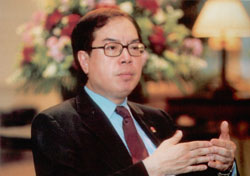
Portuguese, which is one of Macao’s two official languages, is spoken by around 200 million people in eight countries on four continents, namely, Angola, Brazil, Cape Verde, Guinea-Bissau, Mozambique, Portugal, Sao Tome and Principe and the world’s newest nation, East Timor. These countries are still widely untapped markets that all, however, have great potential for development.
Macao has traditionally maintained close ties with Portugal and other Portuguese-speaking countries. Most civil servants and a number of businessmen in Macao speak Portuguese.
The Forum of Portuguese-speaking Entrepreneurs (Forum dos Empresarios de Lingua Portuguesa/FELP), was set up in Portugal as a non-profit and non-governmental organisation in 1998. FELP now has branches in seven Portuguese-speaking countries, as well as in the Macao Special Administrative Region. There are plans to open a branch in the Democratic Republic of East Timor soon after the territory regains its independence in May 2002. The organisation’s main objective is to strengthen ties between the world’s Portuguese-speaking business communities and trade links, as well as relations between Portuguese-speaking countries and territories and the rest of the world.
FELP’s Headquarters Move to Macao
FELP’s top representative in Macao, Mr. Eduardo Ambrosio, told Macao Image that his organisation is scheduled for restructuring in 2002, and that it planned to move the headquarters from Lisbon to Macao in June, based on Macao’s increasingly prominent role as a bridge between China, a full member of the World Trade Organisation, and the Portuguese-speaking world.
Mr. Ambrosio is one of Macao’s most prominent businessmen, proficient in Cantonese, Mandarin, English and Portuguese, was appointed Head of FELP’s Macao branch in May 2001. According to Mr. Ambrosio, his organisation is determined to establish closer links with the Chinese mainland after the headquarters have been moved here, FELP also plans to increase its membership in order to strengthen its position as a business-orientated entity. Mr. Ambrosio stressed that new members “do not necessarily have to speak Portuguese in order to qualify for membership. As long as you do business with the Portuguese-speaking nations, you can be a member.”
Macao exported many products to Africa in the 1960s, unfortunately, trade was later affected by civil war and other social problems on the continent. Mr. Ambrosio is, however, upbeat about new trade and investment opportunities there, he stressed that “given the recent stability in Africa, Macao should re-enter the African market. Moreover, many Chinese producers want to export to markets other than Europe or the United States. That’s why Portuguese-speaking countries like Angola and Brazil can assist Chinese products to gain access to African and South American markets. Then China will no longer need to depend on South Africa for access to the whole African market. In the same fashion, Portuguese-speaking countries in Eastern, Western and Northern Africa can function as gateways for Chinese goods to enter other African markets.”
Huge Potential in Portuguese-speaking Markets
Over 200 million Portuguese-language speakers around the world do, in fact, represent a huge market. Mr. Ambrosio is convinced that Macao can be an entrepot for trade between the greater China area and the world’s Portuguese-speaking countries, he pointed out, quite rightly, that “Brazil, the world’s fifth largest country in terms of area and population, is the biggest Portuguese-speaking country with a population of some 180 million. They have a strong demand for motorcycles. Chinese producers may find some difficulty in exporting their motorcycles since they do not speak the language and do not have sufficient knowledge about local market conditions. Macao can be very helpful in making arrangements for the proper import procedures and the translation of all the necessary documents. All this will facilitate the whole process.” According to Mr. Ambrosio, FELP provides a wide range of services, including market research, arbitration settlements, consultancy, oral and written translations, and the organisation of fact-finding missions, FELP’s members are veterans of doing business with Portuguese-speaking countries.
Situated on an island in the Timor Sea, East Timor was ruled by Portugal for four centuries until 1975, when Indonesia invaded it. The territory, which has some 800,000 inhabitants, finally regain its independence in May 2002. Macao has traditionally maintained very close ties with East Timor, during its occupation by Indonesia, several hundred East Timorese sought shelter in Macao. In early 2002, there were still some 100 Timorese in Macao. Based on his first-hand experience during a fact-finding mission to East Timor in March 2002, Mr. Ambrosio pointed out that “East Timor continues to be affected by poor infrastructure. The East Timorese hope to draw foreign investment in manufacturing in order to create new jobs. East Timor is a good destination for investment, based on its vast and inexpensive land resources and cheap labour.”
FELP holds a seminar in Macao every year, and it has also hosted meetings in Beijing, Yiwu City, Zhejiang Province and Guangzhou in recent years. According to Mr. Ambrosio, 80 Portuguese-speaking entrepreneurs were present at the meeting in Macao in 2001, he hopes to welcome some 150 to 200 participants in 2002. FELP also plans to send Chinese business delegations to several Portuguese-speaking countries in the near future.



